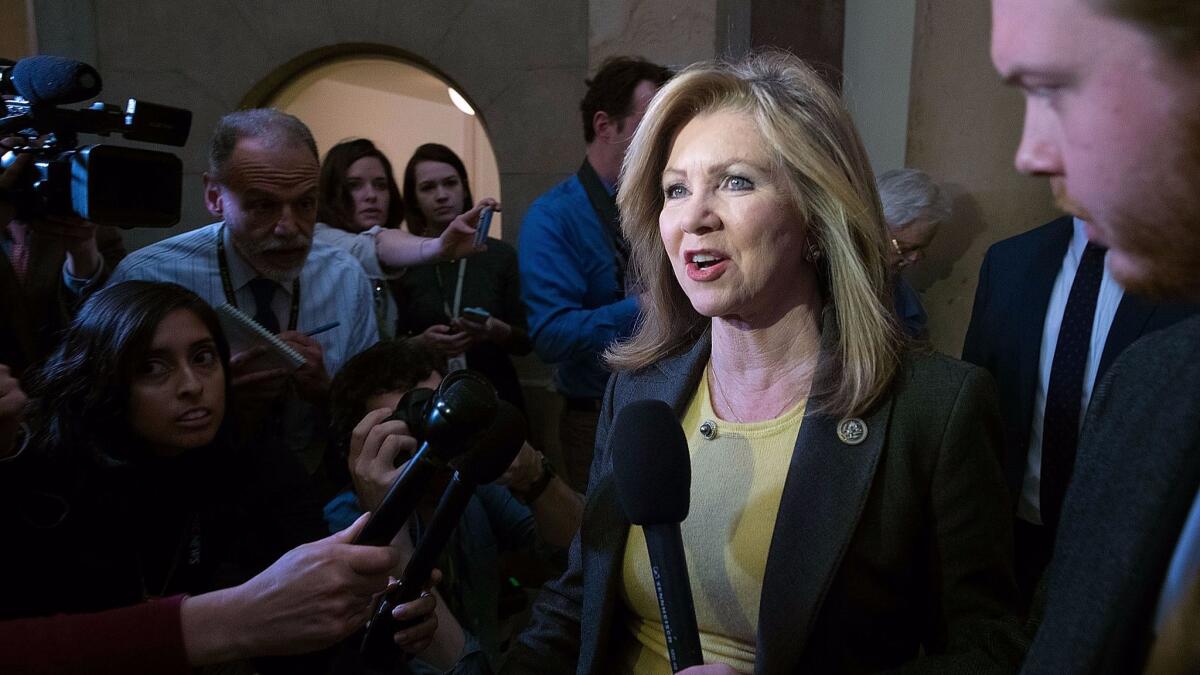House sends Trump bill to kill landmark broadband privacy regulations

The House voted Tuesday to kill landmark privacy restrictions for Internet service providers and sent the bill to the White House, which indicated President Trump would sign it and invalidate the rules before they go into effect.
The measure, approved largely along party lines, repeals tough new Federal Communications Commission regulations that would require broadband companies to get explicit customer permission before using or sharing most of their personal information.
The data include health information, website browsing history, app usage and the geographic information from mobile devices. The rules also tighten data security requirements.
Republicans, along with AT&T Inc., Charter Communications Inc., Comcast Corp. and other providers of high-speed Internet service, strongly opposed the rules. They argued that the restrictions are tougher than those for websites and social networks that also collect and use the highly valuable consumer data, which companies use to target advertising.
“These broadband privacy rules are unnecessary and are just another example of big government overreach,” said Rep. Marsha Blackburn (R-Tenn.), who sponsored the repeal bill.
But supporters of the new regulations, including Democrats, consumer groups and privacy advocates, fear that Internet service providers are assembling detailed files on their customers without their consent.
Broadband companies serve as gatekeepers for Internet access and the data they collect should receive greater protections, backers of the rules said.
“Broadband providers are in the unique position of seeing everything we do on the Internet,” said Rep. Anna Eshoo (D-Menlo Park), noting that Americans pay for online access and often face early termination fees to make a change.
“Consumers don’t pay to use search engines or social media applications…. If they don’t like Google’s privacy policy they can switch over to Bing without paying any fees,” she said. “But consumers can’t do that with Internet service providers.”
Trump’s election, along with Republican majorities in the House and Senate, made it possible for opponents to use a rare procedure to repeal regulations enacted by a federal agency.
House approval, by a 215-205 vote, came after the Republican-controlled Senate narrowly voted last week for the repeal measure.
The White House said Tuesday that the Trump administration “strongly supports” the repeal. The president’s advisors would recommend he sign the bill, the White House said in a formal statement of administration policy.
The rules had been approved in October by the Federal Communications Commission on a 3-2 party line vote when it was controlled by Democrats under the Obama administration.
Under the regulations, cable and wireless companies that offer broadband service would need customer approval to share all but nonsensitive data. Consumers would have to opt out of the sharing of that information.
Nonsensitive information is defined narrowly — most customer data would be considered sensitive under the FCC’s definitions.
Before the FCC gained privacy authority over broadband providers last year as part of its net neutrality rules, those companies did not have to get permission to use or share any data.
The FCC’s definition of sensitive data is broader than that of the Federal Trade Commission, which oversees privacy for search engines and social networks. The FTC said companies don’t need consent before using or sharing nonsensitive data, although customers can opt out.
Republicans and broadband companies prefer that the FTC oversee online privacy. The agency generally has less authority than the FCC.
Broadband providers said regulators should provide a level playing field with equal treatment for all companies that have access to consumers’ online data.
“I think there’s a lot of misinformation out there that somehow (Internet service providers) use online information differently from other companies in the Internet ecosystem or even have the ability to see information that others do not,” said Howard Waltzman, general counsel for the 21st Century Privacy Coalition. The group represents large telecommunications companies.
After Republicans took over the FCC’s majority with Trump’s inauguration, the agency voted 2 to 1 along party lines this month to halt the first of the new privacy regulations that were scheduled to go into effect the next day. That provision dealt with new data security requirements.
FCC Chairman Ajit Pai, who voted against the rules in October, said the delay would give the agency time to consider formal requests from trade groups representing Internet service providers to reconsider the regulations.
The FCC probably would overturn the rules after such a reconsideration. But the congressional measure would invalidate the rules immediately while also preventing the FCC from issuing privacy regulations in the future that are “substantially the same.”
Twitter: @JimPuzzanghera
More to Read
Inside the business of entertainment
The Wide Shot brings you news, analysis and insights on everything from streaming wars to production — and what it all means for the future.
You may occasionally receive promotional content from the Los Angeles Times.











